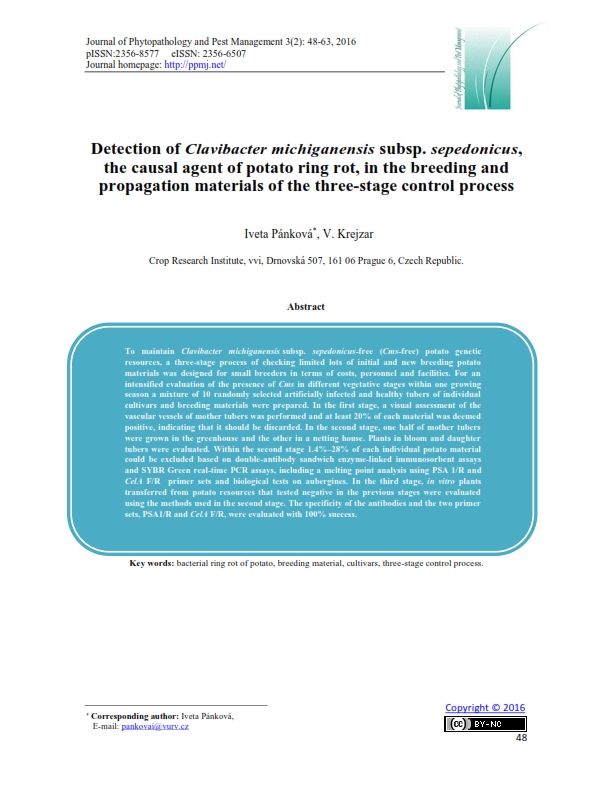Detection of Clavibacter michiganensis subsp. sepedonicus the causal agent of potato ring rot, in the breeding and propagation materials of the three-stage control process
Mots-clés :
bacterial ring rot of potato, breeding material, cultivars, three-stage control process.Résumé
To maintain Clavibacter michiganensis subsp. sepedonicus-free (Cms-free) potato genetic resources, a three-stage process of checking limited lots of initial and new breeding potato materials was designed for small breeders in terms of costs, personnel and facilities. For an intensified evaluation of the presence of Cms in different vegetative stages within one growing season a mixture of 10 randomly selected artificially infected and healthy tubers of individual cultivars and breeding materials were prepared. In the first stage, a visual assessment of the vascular vessels of mother tubers was performed and at least 20% of each material was deemed positive, indicating that it should be discarded. In the second stage, one half of mother tubers were grown in the greenhouse and the other in a netting house. Plants in bloom and daughter tubers were evaluated. Within the second stage 1.4%–28% of each individual potato material could be excluded based on double-antibody sandwich enzyme-linked immunosorbent assays and SYBR Green real-time PCR assays, including a melting point analysis using PSA 1/R and CelA F/R primer sets and biological tests on aubergines. In the third stage, in vitro plants transferred from potato resources that tested negative in the previous stages were evaluated using the methods used in the second stage. The specificity of the antibodies and the two primer sets, PSA1/R and CelA F/R, were evaluated with 100% success.
Métriques

Téléchargements
Publiée
Comment citer
Numéro
Rubrique
Licence
Click here for more information on Licensing policy
.png)




